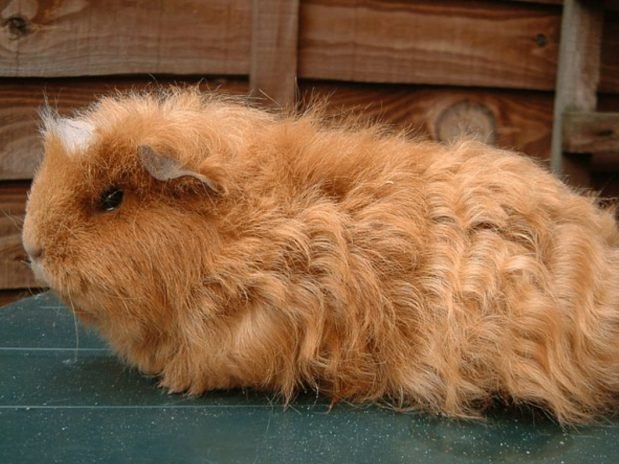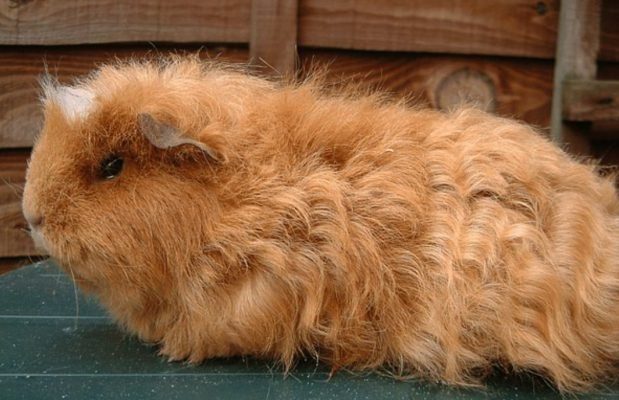
So, what common health concerns should you keep an eye out for in your Texel guinea pig? And how can you fend off those pesky problems before they start? Let’s dive into this together, just like two friends chatting over coffee about the best ways to keep our furry pals safe and sound.
Dental Issues: Why Your Guinea Pig’s Teeth Matter
One of the most common health issues for guinea pigs, including Texels, is dental problems. Did you know that guinea pigs’ teeth never stop growing? That’s right! If they don’t wear them down properly, their teeth can become overgrown, leading to painful conditions. Imagine trying to chew food with a giant, mismatched pair of scissors. Not fun, right?
To prevent dental issues in your Texel, you should ensure they have ample access to hay. Hay acts like nature’s toothbrush, helping to wear down their teeth naturally. You might also want to give them safe chew toys. Look for options made from untreated wood or even some crunchy veggies. Regularly check their teeth, too—if you see any discoloration or misalignment, it’s time to consult a vet.
Signs of Dental Problems
Keep an eye out for these common signs of dental problems in your Texel:
- Difficulty eating or dropping food
- Excessive drooling
- Swollen gums
- Weight loss or refusal to eat
If your guinea pig shows any of these symptoms, it’s important to act quickly. A vet can provide the care and treatment your little one needs.
Skin Issues: Managing Those Luxurious Coats
Texel guinea pigs are famous for their gorgeous, curly fur, but that beauty requires some care. Unfortunately, they’re also prone to skin issues, like mites or fungal infections, which can leave your fluffy friend feeling itchy and uncomfortable. Imagine having constant itchiness—it’s enough to drive anyone nuts!
To keep your Texel’s coat in tip-top shape, regular grooming is essential. Combing their fur not only keeps it looking great but also helps you spot any pesky bugs or skin irritations early. You might find that a gentle bath with a small amount of guinea pig shampoo can help maintain a healthy coat too. Just remember, a good grooming session can also be a bonding experience for you both!
Signs of Skin Problems
Watch for these signs that your Texel might be struggling with skin issues:
- Excessive scratching or biting at the skin
- Red or inflamed skin
- Patches of fur loss
- Foul odors from the coat
If you notice any of these symptoms, it’s best to take your guinea pig to the vet for advice.
Respiratory Issues: Breathing Easy
Like many small animals, Texel guinea pigs can be susceptible to respiratory infections. Their little lungs can be delicate, especially in a dusty environment or if they’re exposed to smoke or strong odors. Imagine trying to breathe through a straw—frustrating, right?
To help prevent respiratory issues, keep your guinea pig’s living area clean and well-ventilated. Make sure their bedding is dust-free and replace it regularly. Avoid placing their cage near drafts or direct sunlight, as temperature changes can stress them out.
Signs of Respiratory Problems
Be vigilant for these common signs of respiratory distress in your Texel:
- Labored breathing or wheezing
- Runny nose or watery eyes
- Change in vocalizations (more wheezing, less chattering)
- Loss of appetite
If you notice any of these signs, consider a vet visit to get them checked out.
Obesity: Keeping Your Texel Fit and Healthy
While all guinea pigs love a good snack, Texels can be prone to obesity if they’re not careful. Think of it like an endless buffet; without some restraint, it’s easy to overindulge! An overweight guinea pig can face various health issues, from mobility problems to a shorter lifespan.
To help prevent obesity, stick to a balanced diet rich in hay, fresh vegetables, and a limited amount of pellets. Make sure to avoid sugary treats or high-calorie snacks. Exercise is crucial, too! Provide plenty of space for play and exploration, as well as tunnels and toys that encourage movement.
Signs of Obesity
Keep an eye out for these signs that your Texel might be tipping the scales:
- Difficulty in moving around or getting up
- Visible weight gain, like rolls or a puffy appearance
- Less interest in play or exploration
If you suspect obesity, consider consulting with a vet on a healthy weight plan for your furry friend.
Gastrointestinal Problems: Healthy Tummies Matter
Just like humans, guinea pigs can face gastrointestinal issues, including bloat or diarrhea. A happy Texel needs a happy tummy, so let’s keep that gut in good shape! Their digestive systems rely on a high-fiber diet primarily composed of hay.
To ensure your guinea pig is digesting well, avoid sudden changes in their diet. Stick to their standard feeding routine and introduce new foods gradually. Always offer fresh, high-quality hay and avoid giving too many treats, as they can upset their stomachs.
Signs of Gastrointestinal Distress
Watch for these common signs that your Texel might have gastrointestinal problems:
- Infrequent bowel movements or soft stools
- Loss of appetite or sudden weight loss
- Abdominal swelling or hard belly
If you see any of these symptoms, a vet check-up is essential to help them get back on track.
Owning a Texel guinea pig can be an incredibly rewarding experience, but it comes with the responsibility of keeping them healthy. By being aware of common health concerns and implementing preventive measures, you can ensure your little buddy has a long, happy life.
Regular check-ups with a vet, a balanced diet, and a clean living environment are all part of the recipe for success. Remember, a happy guinea pig means a happy you! By taking the time to understand and care for your Texel, you’ll create a joyful bond that lasts for years to come. So, let’s keep those little tails wagging and those cute noses twitching!

